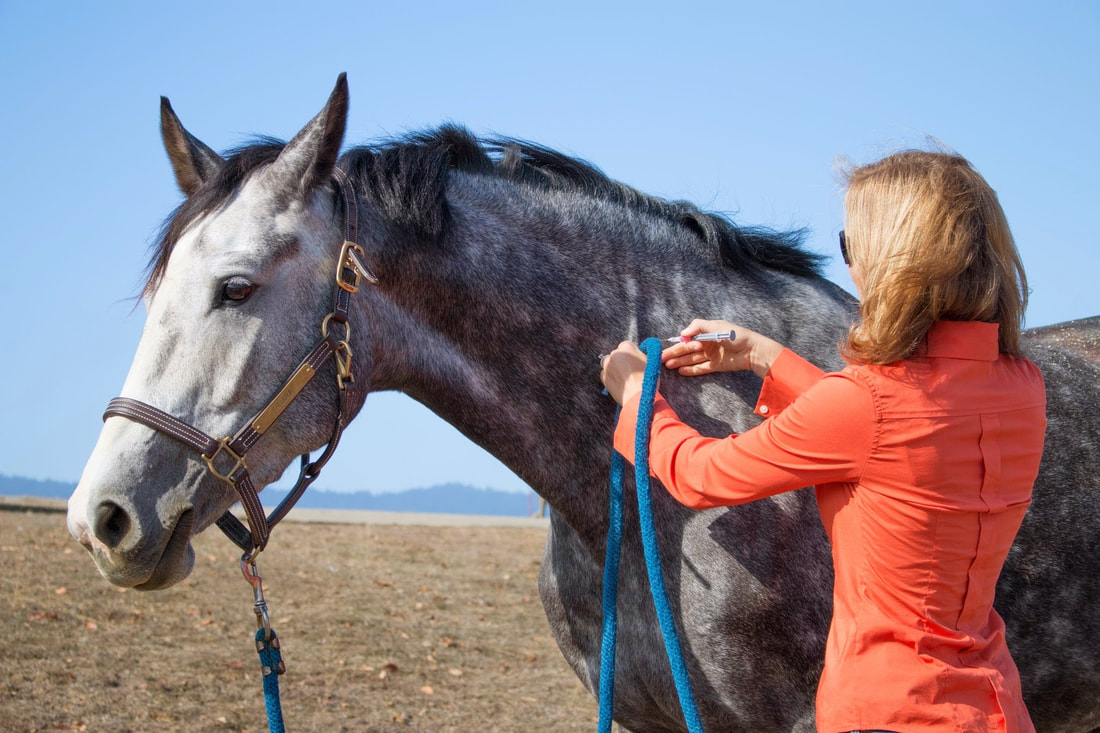|
Since first being recognized in the United States in 1999, West Nile virus (WNV) has posed a serious threat to horses and humans alike. In the equine population, the virus is transmitted when a mosquito takes a blood meal from a bird infected with WNV, then feeds on a horse. While many horses exposed to WNV experience no signs of illness, the virus can cause inflammation of the brain and spinal cord. In some cases, especially in older horses, WNV can be fatal. As a horse owner, prevention is the key to reducing your horse’s risk of contracting WNV. Follow these guidelines from the American Association of Equine Practitioners (AAEP) to protect your horse against WNV:
For more information about the virus, contact the Starwood Equine office. Additional information about WNV can be found on the AAEP’s website at http://www.aaep.org.
Reprinted with permission from the American Association of Equine Practitioners.
0 Comments
True vaccine reactions (such as anaphylaxis) are rare, but an “adverse effect,” such as a small swelling at the site of injection, transient fever, and inappetence, or soreness at the vaccination site are slightly more common. Adverse reactions are not always predictable and are inherent risks of vaccination. We recommend that horses not be vaccinated in the 2 weeks prior to shows, performance events, sales or domestic shipment. Most of these signs will resolve on their own in a day or two, but if you have questions or concerns please call us to discuss. Core vs. Risk-Based Vaccinations:Core vaccines, which include Eastern and Western equine encephalomyelitis (EEE/WEE), West Nile virus (WNV), tetanus and rabies should be administered to all horses at least annually, following the initial series in foals or previously unvaccinated patients. Risk-based vaccines protect against a variety of diseases that can affect certain horses but are not necessarily a risk for all horses. Horses that travel and compete are at a higher risk of coming into contact with other horses and these pathogens. When horses are infected with these pathogens, they can develop clinical signs of respiratory disease such as lethargy, high fever, mucoid (mucousy) nasal discharge and coughing. Risk-based diseases include viral respiratory pathogens such as equine influenza (EIV) and equine herpesviruses-1 and -4 (EHV-1/4), also termed rhinopneumonitis. It is important to consider that performance horses are at a higher risk of exposure to viral respiratory pathogens. By implementing proper vaccination protocols, as well as good biosecurity measures, the risk of disease is lowered. Affected horses can be out of training for a few days up to a month or more, so in these cases, prevention is truly the best medicine.
|
Topics
All
Archives
May 2021
|
Privacy Policy | Copyright © 2019 Starwood Equine Veterinary Services, Inc. All rights reserved.


 RSS Feed
RSS Feed